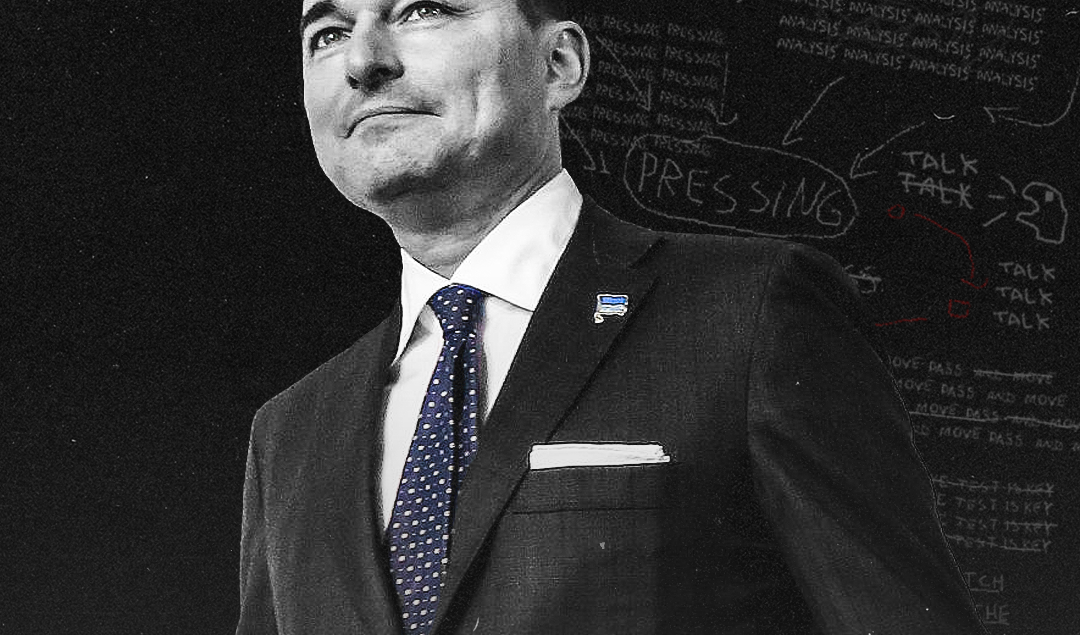A Lesson in Club Mismanagement: How Hertha Became Berlin’s Second-Best Club
The darling of football writers making lists about unsuccessful capital cities in terms of football, Hertha have always been viewed as a sleeping giant. Considered to be among the best teams in the country in the interwar years, Hertha’s fanbase and catchment area was sliced in half with the construction of the Berlin Wall. Fans from the east part of Berlin would listen in on games next to the wall as the stadium was close by until the secret police cracked down on this behavior.
The sixties saw the team demoted twice for bribery scandals and with immense debts their stadium had to be sold. In the next two decades, Hertha went from Bundesliga regulars in the seventies to a yoyo team in the 80s, slipping as low as the third amateur division. The stories from the German capital never ceased to amaze, such as the time when the amateur second team reached the German Cup final in 1993. In the most recent decades, the madness didn’t stop, as the club balanced out every top-four finish and European qualification with relegations and close shaves.
Hertha was therefore on a pedestal for everyone to see, as one of the most attractive clubs for investment. Even though the German 50+1 rules did not allow someone like Qatar Sports Investments to outright buy the club, the club was in many ways similar to PSG. The only Bundesliga club (up until recently) from a huge capital city, with a great catchment area and potential for ascension to the glamour of the Champions League. One of the people who was enticed by this prospect was Lars Windhorst, who started investing in the club in the summer of 2019.
The Teams That Competed in Europe Whilst Playing in Lower Leagues
Windhorst, who started out importing computers and electronics from Asia during the 90s, bought a 37% stake in the club and a further 12% one year later, to take his investment to around 224 million Euros. His business ventures started when he was only 14, importing computers from Asia, assembling them in his family’s garage and then selling them in the family shop. With the German press swooning over the new wonderkid he was invited to attend the World Economic Forum in Davos, where he built out his contacts.
In 1995, he launched his company, Windhorst Electronics. Sadly for him, the .com bubble forced him to declare bankruptcy in 2003. After that, he made a foray into investment, with his new company, Sapinda. However, the 2008 financial crisis forced him into bankruptcy once again. The company was relaunched in 2010 when Windhorst moved to London and started rubbing shoulders with the UK’s politicians and elites. The company has rebounded since and was renamed Tennor in 2019.
In the first season under new leadership, Hertha employed Jürgen Klinsmann as interim, who would later resign via Facebook. Klinsmann had previously been employed by Windhorst as his representative in the Hertha general assembly and his resignation came after clashes with the club’s leadership over his lack of control. In the first two transfer windows since the takeover the club signed Dodi Lukebakio, Lucas Tousart, Santiago Ascacíbar, Krzysztof Piątek and Matheus Cunha for a combined outlay of 95 million Euros. With these signings and four managers, Hertha ended their season in tenth.
The next season, with the pandemic in full swing the incomings were toned down somewhat, as Windhorst sank another 150 million into the club to take his total outlay to a whopping 374 million Euros. The results however seemed to be indirectly proportionate to the investment, with Hertha finishing 14th. The next season would be even worse. Whilst eight consecutive wins had previously kept them up.
Hertha finished the 2021-22 season in 16th place and would have to play Hamburg in the relegation playoffs. A 1-0 loss in Berlin was overturned 2-0 in Hamburg to keep the Berliners in the Bundesliga. Over these two seasons, they burned through four managers and signed aging stars on high wages like Sami Khedira, Kevin Prince Boateng, and Stefan Jovetic.
The Managers of the 2012/13 Premier League Season: Where Are They Now?
Behind the scenes, the insanity was in full swing. Despite Fredi Bobic’s record at Frankfurt promising a turnaround in the club’s fortunes at his appointment as sporting director, he lasted only a year in charge. Club president Werner Gegenbauer was also replaced by former ultra leader Kay Bernstein, with Windhorst allegedly paying an Israeli private intelligence firm to run a smear campaign against Gegenbauer.
Behaviour like this is not far from Windhorst’s mode of conduct, as he had been charged with breach of trust, embezzlement and several counts of insolvency offences in 2009. Since then, Sapinda has also been accused of funding their investments through complex loans handed out to offshore shell companies. The “German Bill Gates” has recently been found in contempt of court in the UK, in an investment scandal.
He ultimately failed in his attempts to gain complete control over the board and with his publicized scheming and horrendous 2022-23 season, he quickly became unwelcome in the eyes of many fans. His share in Hertha was bought out by 777 Partners in March and Hertha will be looking to pick up the pieces in the second tier after a decade-long spell in the Bundesliga.
By: Eduard Holdis / @He_Ftbl
